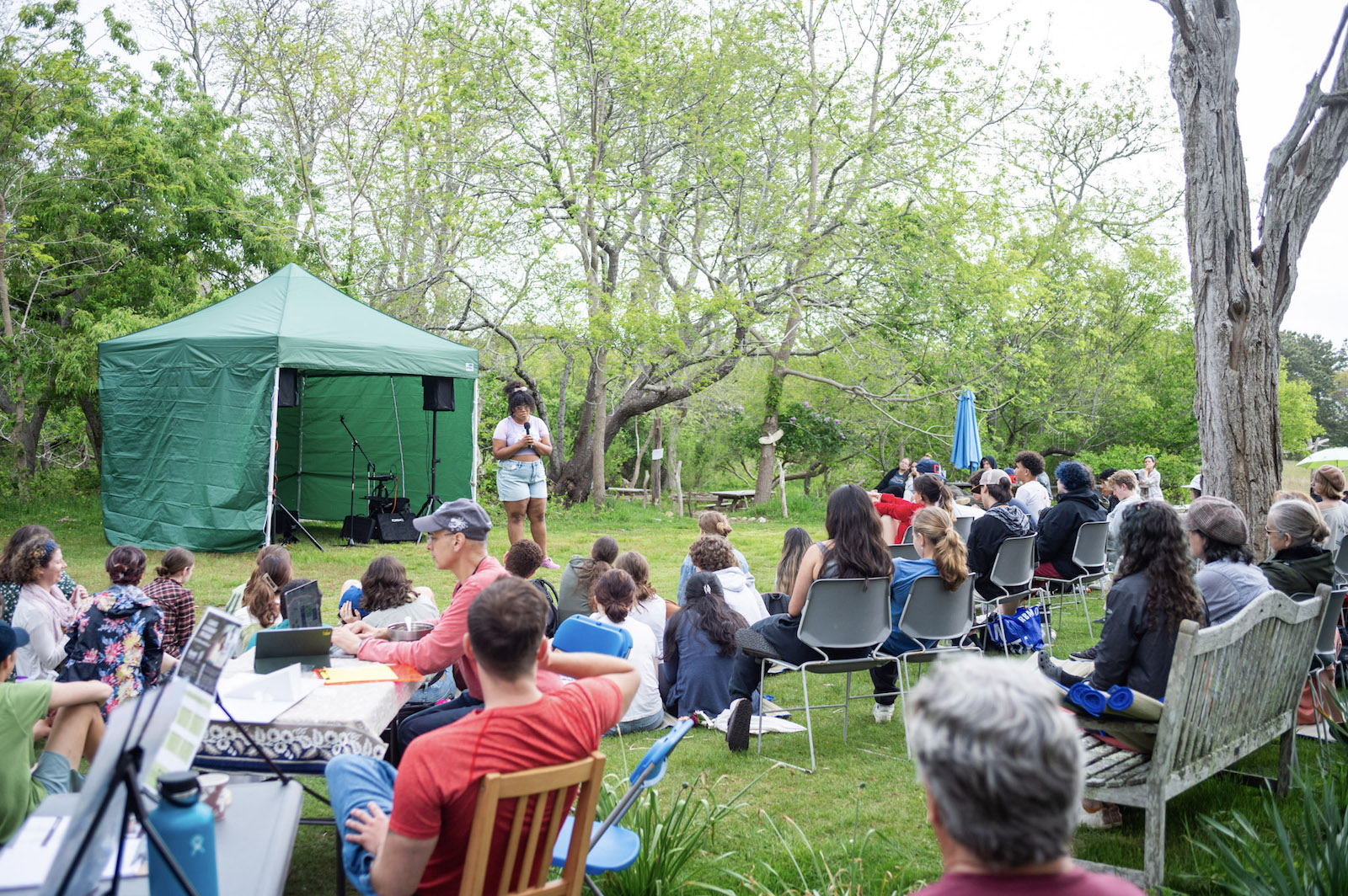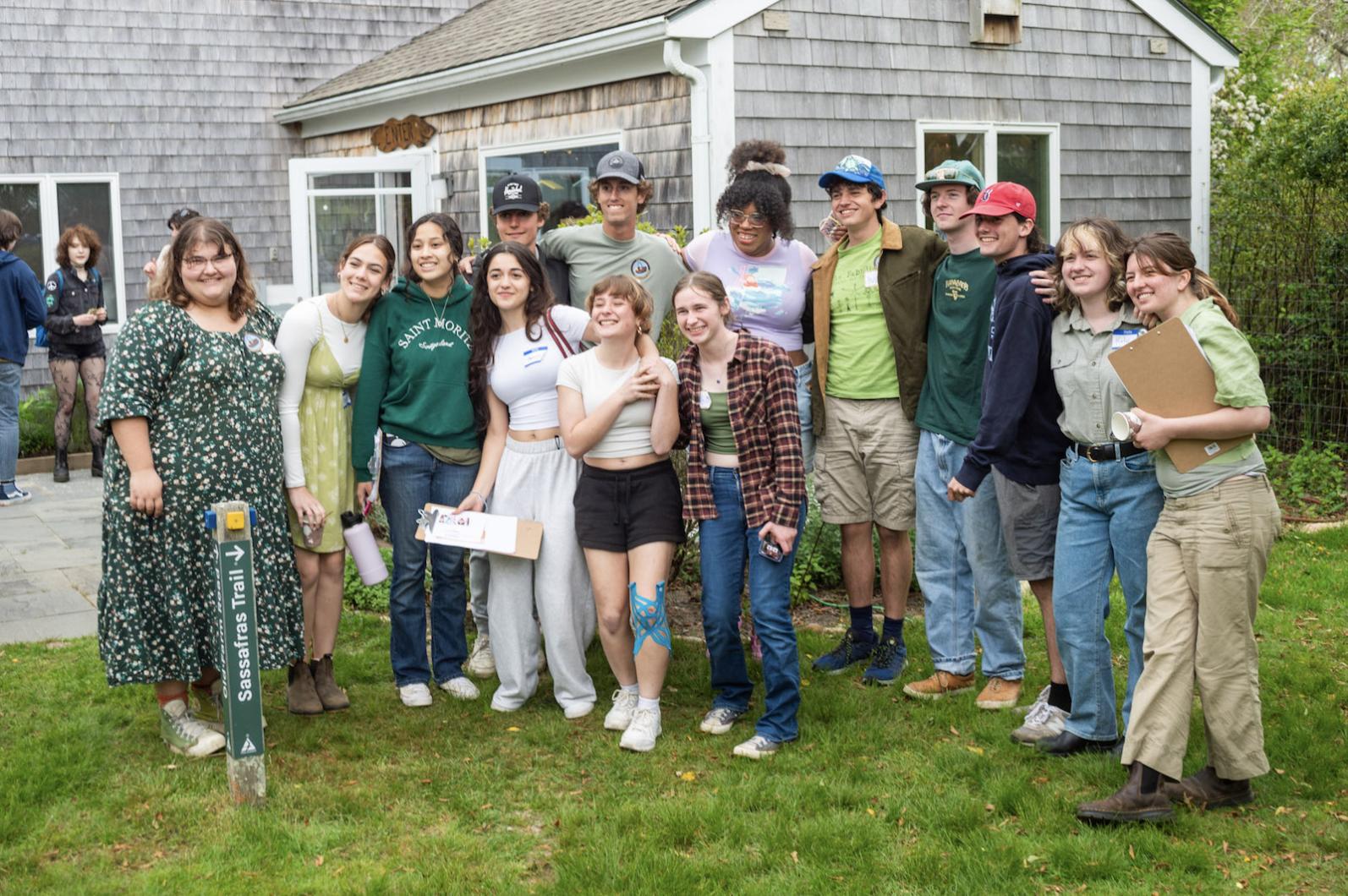On a rural Island filled with woods, fields and beaches, interacting with nature is as easy as going outdoors. But learning how to protect the environment and what is at stake due to the climate crisis sometimes requires extra guidance.
Lulu White and Emma Burt are co-presidents of the Protect Your Environment club at the regional high school. On Thursday they helped host the sixth annual Youth Climate Summit at Felix Neck Wildlife Sanctuary.
Ms. White said that despite how accessible nature is for herself and her classmates, it can be hard to know where to start when it comes to protecting it.
“Especially on the Island that we live on, there’s a great need for students and kids to get more involved,” Ms. White said. “There’s not a lot of education on this in the school.”
Students participated in a variety of activities and round-table discussions centered on sustainability.
Ms. Burt helped with a demonstration on square foot gardening — a method of gardening that uses crop rotation.
“Locally grown food, even if it’s not your own, can reduce your carbon footprint,” she said.
The event ended with a keynote speech delivered by Alexis Nikole Nelson, an environmental educator popularly known as the Black Forager. She told the audience about spending summers on the Vineyard and how it impacted her work today.
“I could be a little feral child on my mountain bike...and eating all the wild blueberries and huckleberries I could get my grubby little hands on,” Ms. Nelson said.
Her mother’s love of gardening and her father’s skill in the kitchen gave her a deep appreciation for wild plants.

“I grew up cooking with them and learning the importance of plants people would usually consider weeds,” she said.
She taught students about the history of foraging in the United States, highlighting the way racist policies throughout time have made it difficult to forage or participate in other sustainable practices, many of which were developed by the indigenous population.
As the weather turned and thunder threatened, Ms. Nelson concluded her speech, saying that hope is a needed component to any conversation about climate.
“When I talk to older folks, it feels like the conversation is always very negative...and I find that doom tends to paralyze people,” Ms. Nelson said. “I find that the conversation with younger folks...they still have a lot of that optimism that galvanizes you and makes you want to go out and change things.”
Despite the weather, which cut the event short, Ms. White deemed the summit a success.
“Overall, I think it was very successful,” she said, adding that every student she spoke to at the event said they had come away with something that interested them.








Comments
Comment policy »